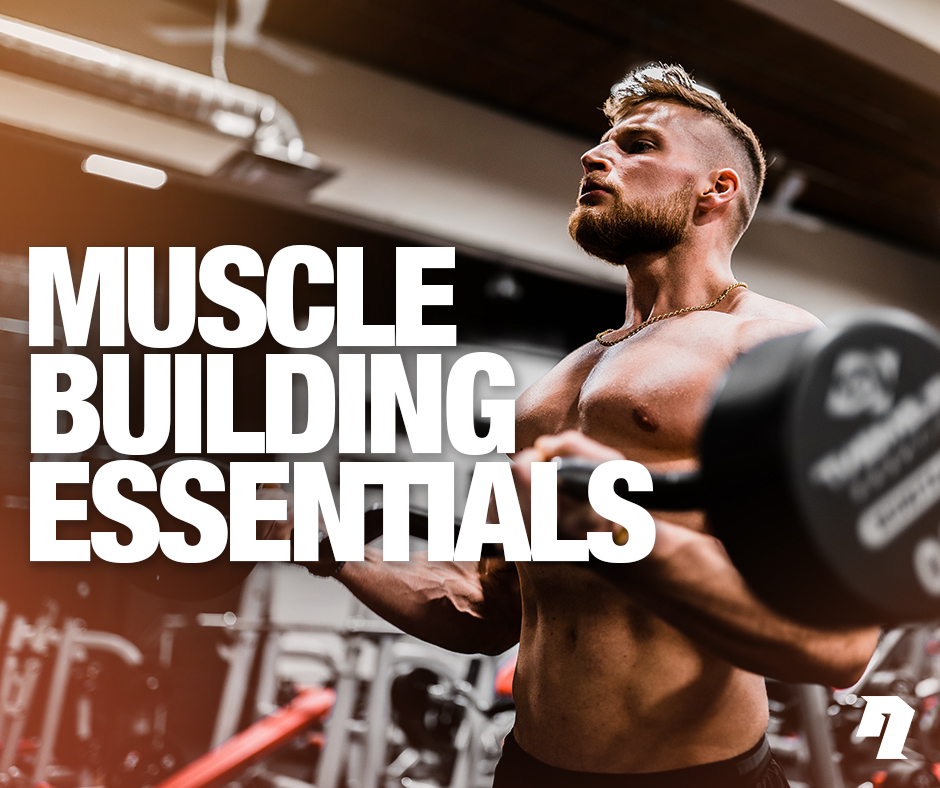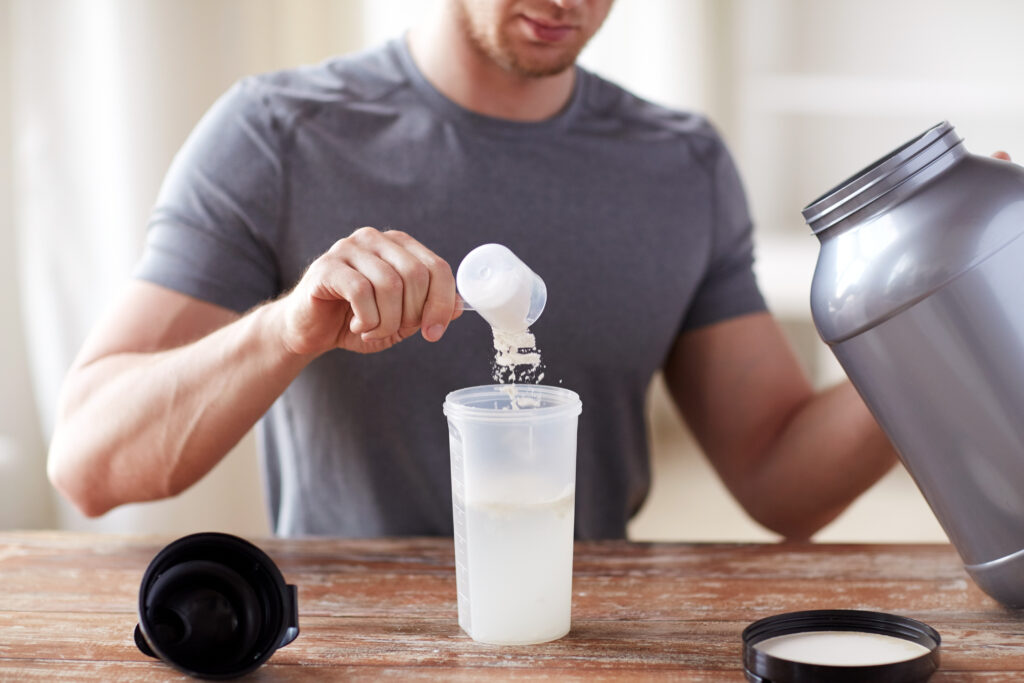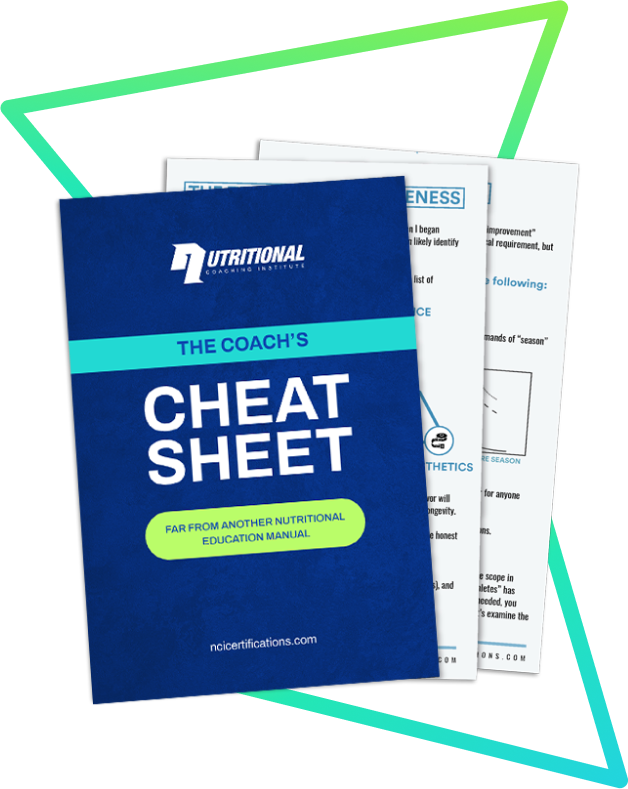There are a ton of factors at play when it comes to building muscle beyond weight training. Sleep, genetic, and most importantly diet, all play a part.
You only have total control over one of those three things; diet. Which brings us to protein and creatine.
WHEY PROTEIN
What does it do? Why should I take it?
Protein is an essential nutrient the body uses to repair damaged tissues and facilitate chemical reactions. In the most basic sense, it makes up everything you see on another human, and helps with a lot of the chemistry that makes the body run under the hood with things called enzymes. Some of the many benefits include increased calorie burning, increased sense of fullness after eating, can help to balance blood sugar, helps with tissue repair and wound healing and supports metabolism.
How much do I need?
This depends on your activity level, but the total range will span anywhere from 0.54 grams to upwards of 1.66 grams per pound of your bodyweight,2. The more athletic or sick you are, the more benefit you’ll find with higher amounts of protein due to it being necessary for repairing damaged tissues. Most people will benefit from 0.72 grams, which equates to 130 grams for a 180-lb male or 94 grams for a 130-lb female. Research generally suggests that breaking up your total amount across at least 4 protein feedings during the day ranging from the amounts of 0.18 to 0.24 grams per pound of body weight per sitting.4
Where do I find it?
Whey protein is a protein that comes from several processes that involve filtering and drying techniques and can be found at various grocery stores or supplement shops. You can also find products on Amazon if you don’t have access to the stores. Make sure you look for brands that are certified through one of the third parties mentioned above. They will typically have a seal or symbol indicating that the products have undergone testing to verify the products in the supplement are accurately represented on the label.
CREATINE
What does it do? Why should I take it?
Creatine is a natural substance in the body that is used in the anaerobic metabolic pathway known as the phosphagen system. Phosphocreatine or creatine phosphate (CrP) is used to make adenosine triphosphate (ATP), the body’s form of energy. When we supplement with creatine we ensure that we have CrP available for use in the phosphagen system, an energy pathway that is crucial for explosive exertion such as a heavy lift or plyometric movement.15
Creatine itself will not cause muscle gain, true muscle gain can come indirectly from a slight uptick of ATP production and therefore a slightly higher output in the gym.
Creatine will saturate the muscle and pull more water into the muscle which can give the illusion of muscle mass growth. This intracellular water is beneficial and is not the same as ‘bloat’.
Along with creatine’s sport performance benefits there is growing evidence that creatine provides support for cognitive health and neuron function, likely due to the increased potential for energy production via the phosphagen system.16
How much do I need?
Smaller, daily doses of creatine supplementation (3-5 g or 0.1 g/kg of body mass) are effective to sustain creatine stores in the body. 17
The consistent daily intake of creatine will maintain adequate levels and a creatine ‘loading’ phase is not required.
Where do I find it?
Creatine supplements are most often found in powder form, though also available in pre-contained capsules for easy ingestion.
You will run into many different forms marketed out there but the original as mentioned above most widely studied is creatine monohydrate. In some cases where creatine monohydrate is causing stomach upset another form can be considered (eg. creatine HCL).
Whole food sources of creatine are found in animal products with some of the highest concentration sources being beef, herring and salmon which contain 0.9g of creatine/ 100 g.
BOTH PROMOTE MUSCLE GAIN
Protein and creatine are two of the most popular supplements that have been shown to increase muscle mass and improve exercise performance, though the ways in which they accomplish this differ. Creatine does so by increasing exercise capacity while protein does so by stimulating increased muscle protein synthesis.






